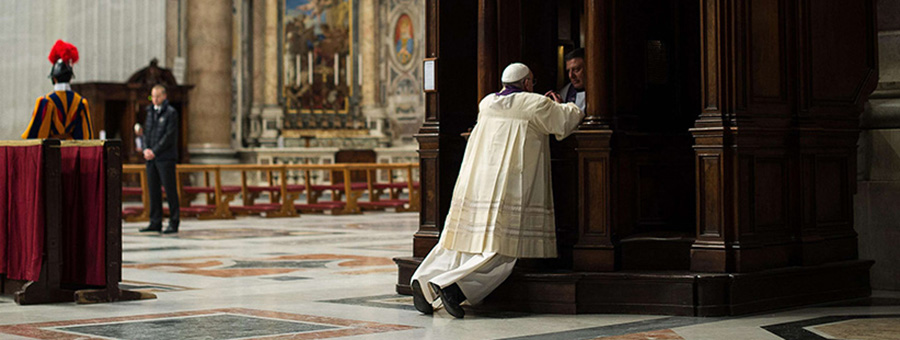By Thomas Creen, MJ • Phoenix, AZ
Thanksgiving Day this year in the United States falls just a few days after the end of the Jubilee Year of Mercy. I am so thankful that Pope Francis instituted this Jubilee. It was important for me to walk through those doors of mercy at different times during the year and receive as many indulgences as possible. Now if you don’t have a clear idea what an indulgence is, it is urgent that you read numbers 1471-1479 in the Catechism of the Catholic Church right away so that you and yours can benefit more from the infinite treasury of grace gained for us by Christ and the saints. Indulgences are always available. A good English translation of the acts of piety which can merit these graces is at www.catholic.org/prayers/indulgw.php.
Another reason to thank God for the Pope is that he has highlighted a very important part of Catholic teaching on morality that needs to be kept in mind in order to have a balanced friendship with the Lord and to help others to do the same. The aspect I am referring to is the subjective side of human life, meaning the inner workings of the human soul that can only be completely understood by God Himself. The perennial teaching of the Church in this regard is found in number 1735 of the Catechism which states: “Imputability and responsibility for an action can be diminished or even nullified by ignorance, inadvertence, duress, fear, habit, inordinate attachments, and other psychological or social factors.”
Objective truth is unchangeable and so is divine law. But Pope Francis has helped shine more light on the call we all have to hate sin without despising sinners. Understanding number 1735 of the Catechism can help us to see people more like God sees them, in the light of His Mercy.
This post is also available in:
 Inglese
Inglese  Hindi
Hindi  Polacco
Polacco  Slavo
Slavo  Spagnolo
Spagnolo  Ucraino
Ucraino



